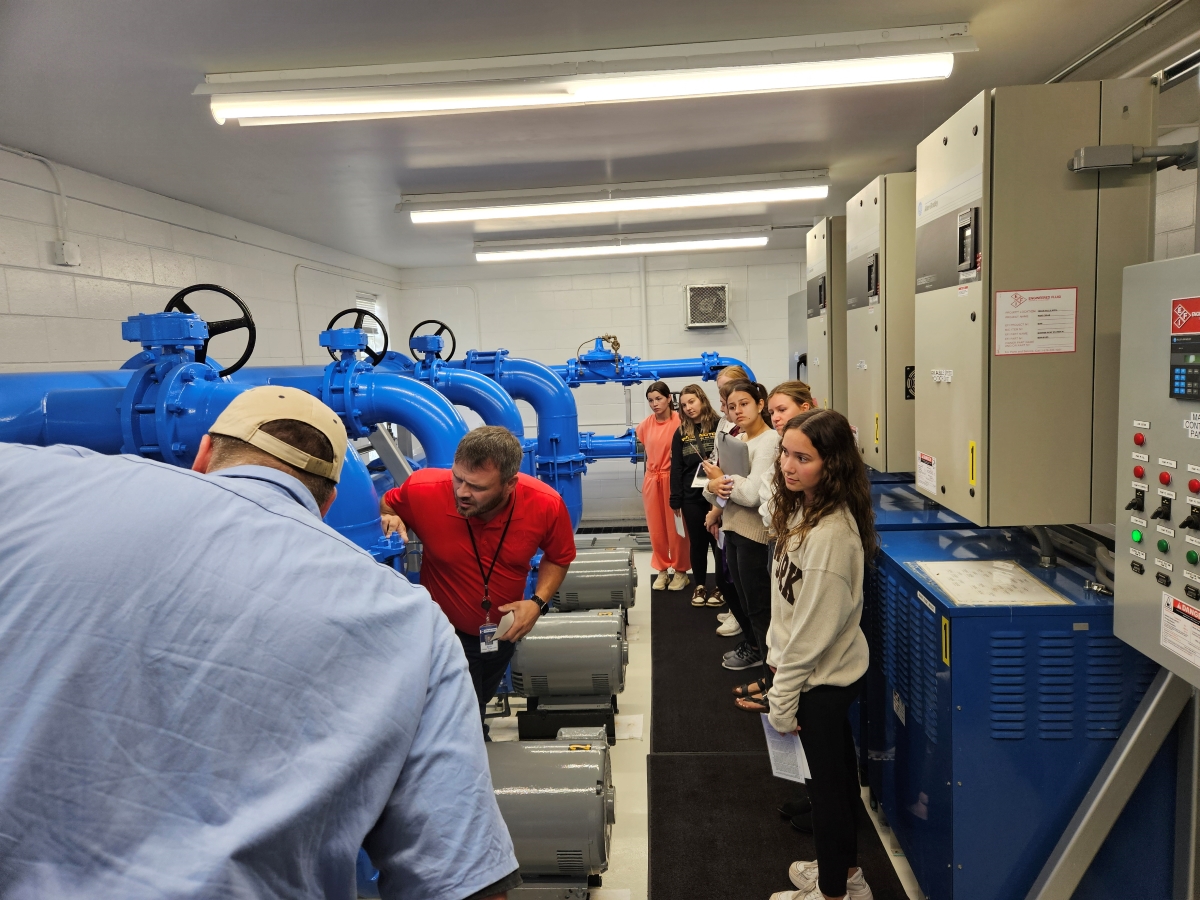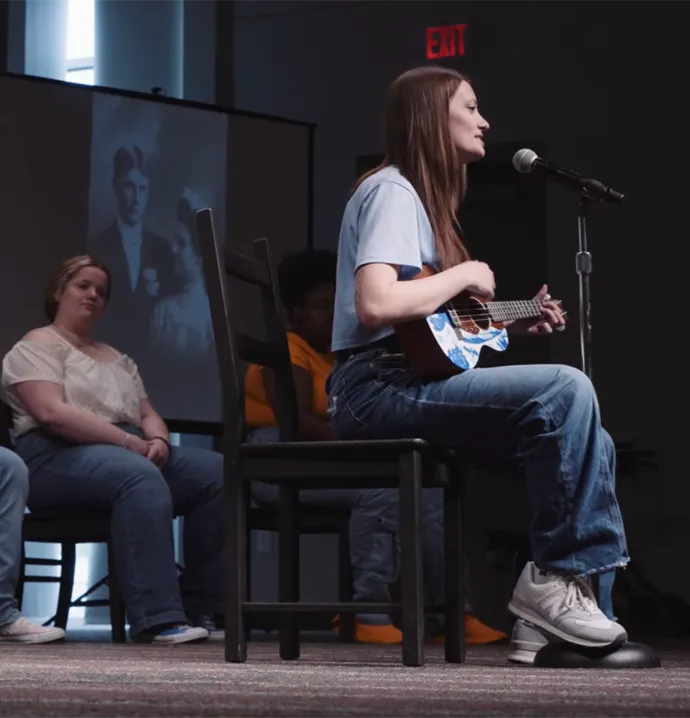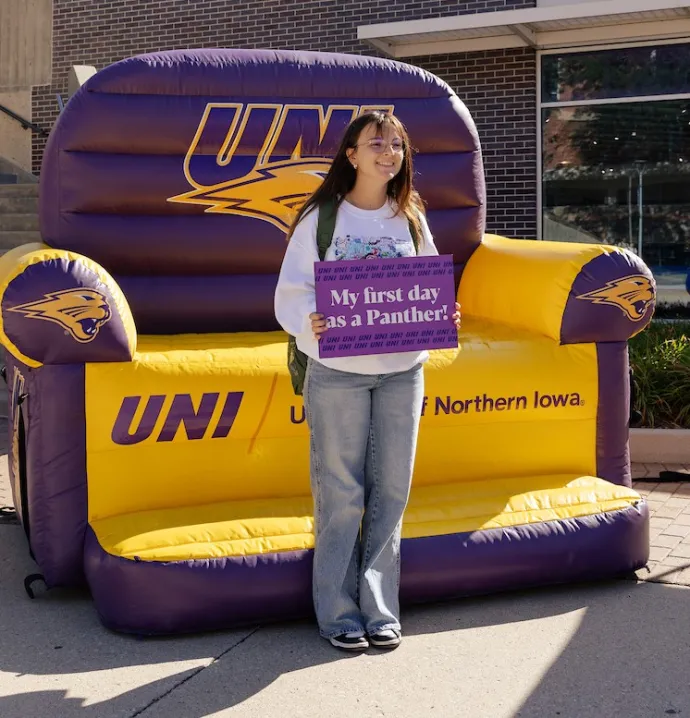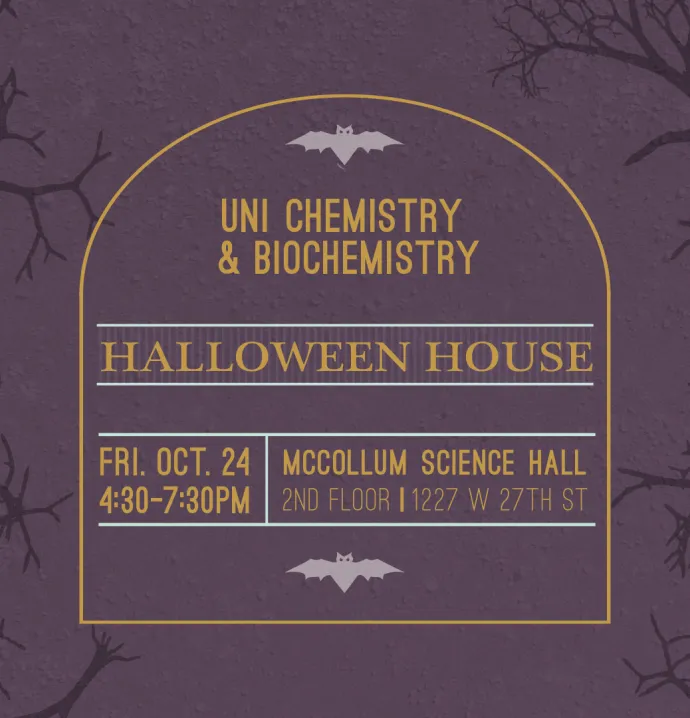UNI students tackle water quality in two languages
UNI students tackle water quality in two languages
UNI students in Assistant Adjunct Professor Cody Boozell’s advanced Spanish conversation and reading class are taking their learning beyond the classroom with hands-on experience at a local water treatment facility to learn global perspectives on water quality. This visit not only deepened their understanding of water treatment but also sharpened their Spanish communication skills through a bilingual approach. The real-world immersion allowed students to draw fascinating connections between water realities in Iowa and Spanish-speaking countries.
“One of the main objectives of this course is to enhance cultural and societal knowledge as it pertains to Spanish, Spanish-speakers and Spanish-speaking countries around the world, while also drawing similarities and contrasts to our own communities,” said Boozell. “With that said, water quality, retention and sustainability is a pressing issue in several Spanish-speaking countries around the world, in terms of water availability and overall quality. Similarly, Iowa has also been faced with the issue of water quality in the sense that nitrates from farmland are entering our water systems in some parts of the state.”
The experience was eye-opening for Lydia Monreal, a freshman majoring in finance and economics. “I was just waiting to learn about a topic that I don't really think about, and I found out that I should probably be thinking about it a lot more.”

During the class visit, students learned about water treatment, water quality, the infrastructure of wells and what the Cedar Falls plant does.
“They gave us a very in-depth description of what their job is and how our water is purified and how Cedar Falls is actually really lucky with the water that we have compared to many other cities,” said Makenzie Orr, a junior majoring in biology: biomedical.
Students prepared some questions ahead of time. As they learned more, they were able to expand their questions, first asking in Spanish and then in English. One of the employees the class met with is a fluent Spanish speaker who had no need for an English translation.
“It was a great opportunity to listen to her fluency and be able to speak on a specific and quite complex topic,” said Monreal. “She's a very great Spanish speaker, so it was a great opportunity to develop my comprehension skills.”
“I think it was just a way for us to get out of our comfort level and speak a different language and work on being fluent in conversations in terms of words and vocabulary we aren't as familiar or comfortable with,” said Orr.
Boozell was pleased to give his students an up-close look on this topic, rather than simply lecturing about it in class. He hopes students will now be able to think critically about water use, treatment and sustainability in Iowa while also thinking critically about the current water realities in Spanish-speaking communities around the world.
For Orr, the experience was well worth the hour it took, and she would recommend it to others.
“Going to that was so beneficial in my understanding of how water systems work because I really had no idea at all. The employees we talked to said they would like to take more people and give tours like anytime anyone ever asked because they want people to know more about their systems and the water we have in Cedar Falls. It was a great way to become more knowledgeable about my community.”




